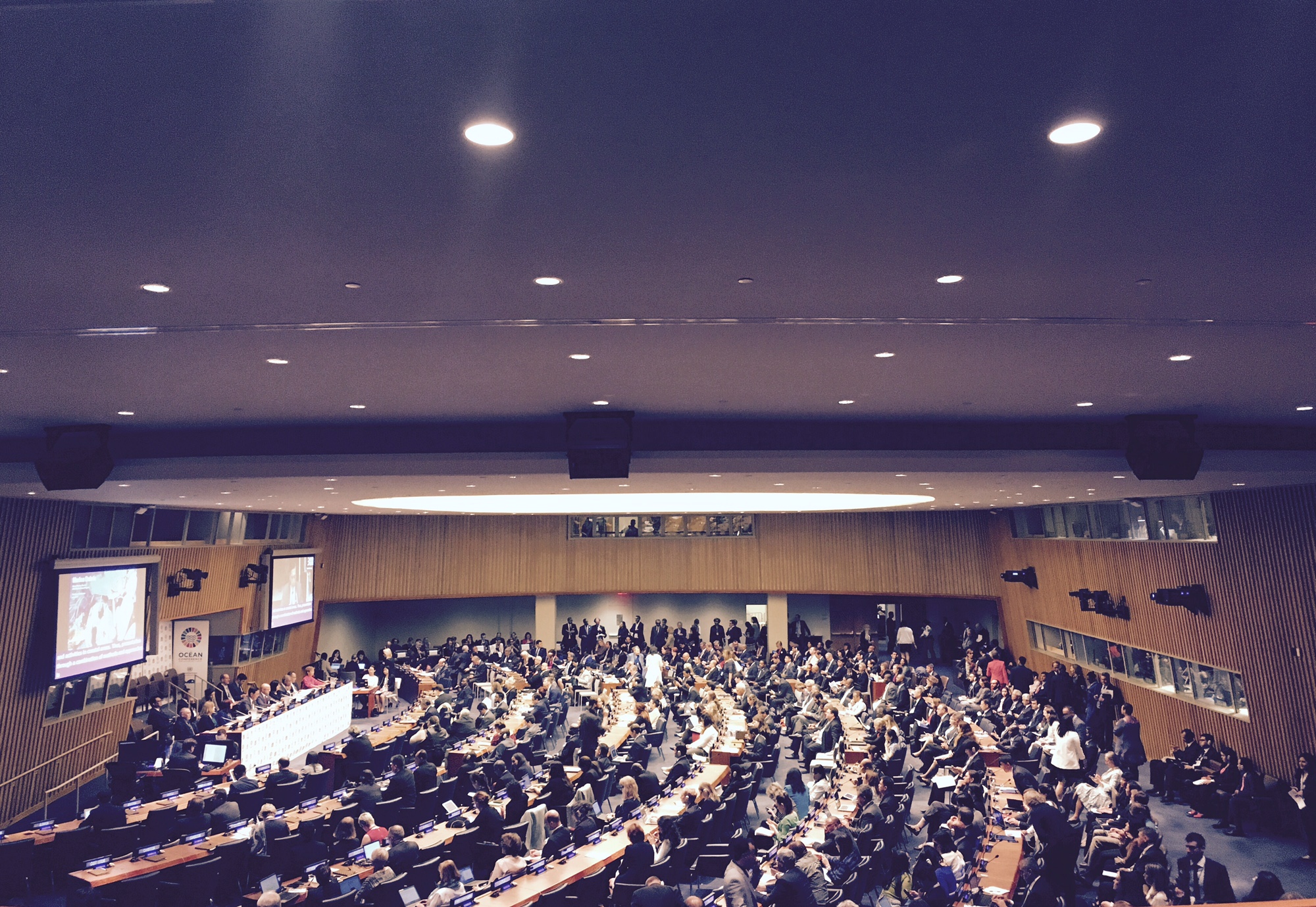Ecological Futurists at Work: Moving Forward on Global Ocean Governance
Dr. Sabaa A. Khan, Postdoctoral Researcher
THE UN Ocean Conference took place from 5 to 9 June 2017 at the UN Headquaters in New York. The historic Conference closed just a few weeks prior to the fourth session of the Preparatory Committee established by UN General Assembly Resolution 69/292 on development of a new legally-binding instrument under the UN Law of the Sea Convention (UNCLOS) to address the conservation and sustainable use of marine biological diversity of areas beyond national jurisdiction (ABN).
TAKEN TOGETHER, these developments point towards an emerging extension of international law into the high seas, conceptualised as a common resource that belongs to all of humanity. As the oceanic sights of international law have risen, so has the hope for the potential geographical influence of legal rules on the horizon to regulate activities on the high seas.
THE MAIN outcome of the UN Ocean Conference was a Call for Action. While this outcome is by no means a binding instrument, its contents echo the ambitions of international environmental law in regards climate change, human health and environmental protection. The Call for Action also looks to future law, reaffirming the ambitions of ongoing legal negotiations under the auspices of UNCLOS (mentioned above), as well as multilateral negotiations under the WTO on disciplining harmful fisheries subsidies.
MOREOVER, THE Call for Action brings to the forefront an area of international environmental law that often receives minimal political attention at all levels of governance – the regulation of chemicals and waste. In this respect, the outcome text of the UN Ocean Conference obliges the global community to not only look forward to the creation of new legal agreements targeting our common marine spaces and resources, but to reflect upon the shortcomings of the existing international legal landscape in regards abating the immense global marine pollution that is linked to the production, use and disposal of toxic chemicals and waste.
THE CALL for Action could not be clearer in that the sound management of chemicals and waste lies at the centre of global ocean health. At the global level, a number of international chemicals and waste regimes exist to protect our marine ecosystems from the global circulation and disposal of toxics. However, their coverage is extremely narrow in scope and their controls are sporadic, limited to specific points of the chemical lifecycle. We have yet to arrive at regulatory frameworks that encapsulate the entire lifecycle of hazardous substances in global use and define, clearly, stakeholder responsibilities at each and every lifecycle phase.
EVIDENTLY, OUR inability to see transparently through our globalized commodity chains gravely limits our capacity to ensure the protection of human and ecosystem health, including the oceans, from toxic commercial substances and waste. The visibility that is required to effectively protect our global communities and common resources from the toxic hazards of chemicals and waste must cut across entire global chains of production and consumption. In this respect, the launch of the Tuna 2020 Traceability Declaration at the UN Ocean Conference should serve inspiration to stakeholders in the broader global commodities and chemicals market, as an example of the product lifecycle and supply chain commitments necessary to follow through on bold environmental, oceanic and human health objectives embodied in our international environmental laws.
IT IS certain that the health and resilience of our oceans will depend critically on the further development of international law, notably on fisheries subsidies, on chemicals and waste trading and evidently, on the protection of marine biodiversity in ABNJ. However, also noteworthy is that the UN Ocean Conference Registry of voluntary commitments received 1328 submissions upon the Conference’s closure. This demonstrates that where intergovernmental legal texts fall short in their capacity to “save our ocean”, transnational stakeholders rise to challenge. The Registry itself creates a self-imposed and public standard for all those who have contributed to it, and should be used as such, to incite a global culture of transparency, governmental and corporate accountability and civil society mobilization. The Registry exemplifies an inclusive ecological futurism at work, a seedling for strengthened global ocean governance, from the bottom up.


